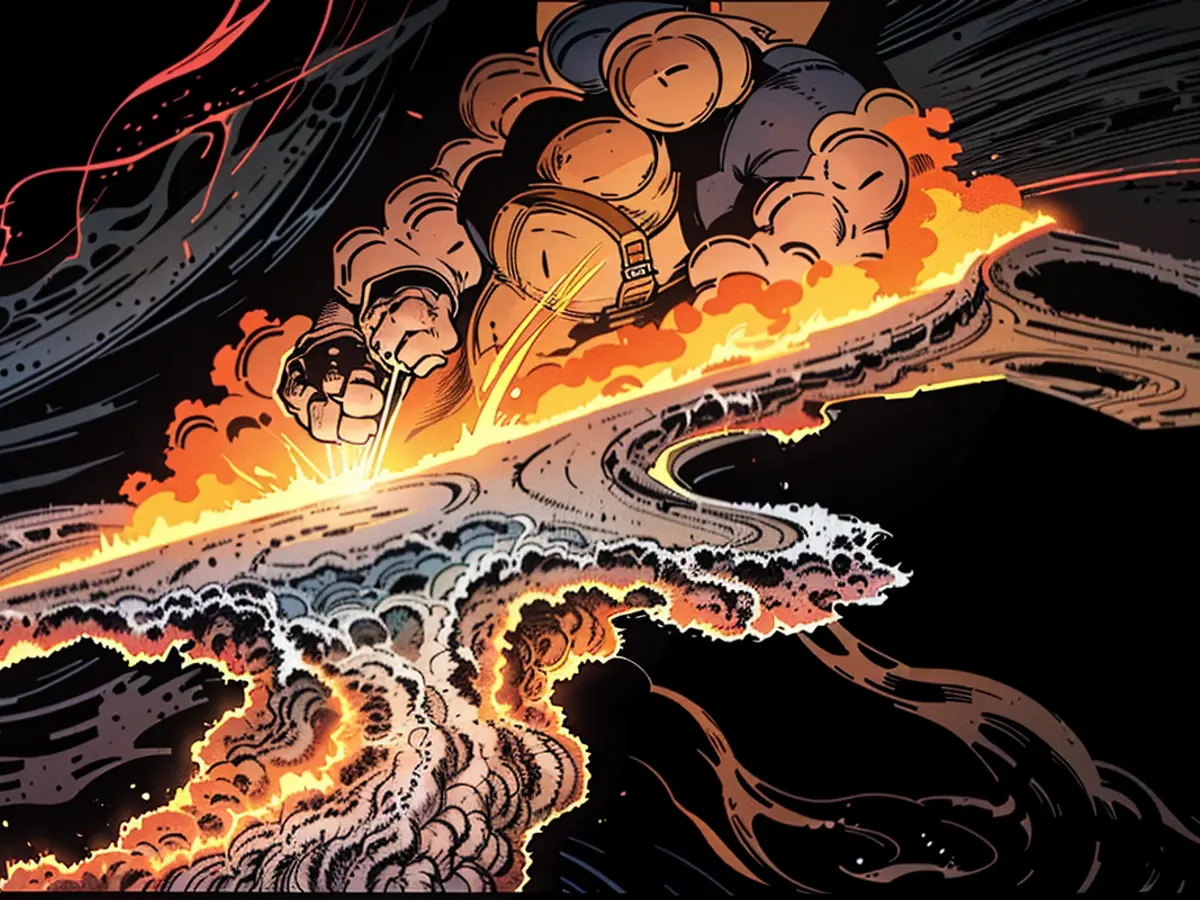Sixth volcanic outburst on Reykjanes Peninsula since December's end
Red-hot lava spilled out from a significant fissure in the earth, leaving a trail of smoky debris ascending to the sky. Initially, the Icelandic Meteorological Office (IMO) calculated the crack's length to be a modest 1.4 kilometers. However, within just 40 minutes, it expanded dramatically to an impressive 3.9 kilometers.
On a Friday morning, news broke that a second crack had surfaced north of the initial site, though the vast majority of volcanic activity remained confined to the original fissure.
Sudurnes region's police chief, Ulfar Ludviksson, deemed the town's evacuation of Grindavik a success. Despite its 4,000 residents, only 22 to 23 homes remained inhabited. Most had vacated in November, with a mere handful settling back in permanently.
Thankfully, Grindavik appeared to be relatively safe from danger this time around. The Icelandic Meteorological Office confirmed that no lava was making its way towards the town. Regardless, seismic activity remained substantial at the fissure's northern end for over an hour, although Grindavik sat to its south.
Professor Magnus Tumi Gudmundsson, a geologist from the University of Iceland, reassured the public that as long as seismic activity remained low at the fissure's southern end, Grindavik would remain unaffected by any lava flows.
Plenty of onlookers lined the route linking Reykjavik and Keflavik airport to witness the eruption firsthand. Isavia, the airport operator, specified that air traffic remained unaffected by the volcanic activity. However, temporarily, the renowned Blue Lagoon, a beloved tourist attraction, was vacated for safety precautions.
Lately, another volcanic outburst had taken place on Reykjanes in southwestern Iceland, which lasted approximately three weeks. The current eruption marked the sixth occurrence on the peninsula in just under a year, starting from December.
Despite experiencing a hiatus of volcanic eruptions for over eight centuries, Reykjanes finally saw its first one in March of 2021. This was followed by additional eruptions in August of 2022 and July and December of 2023. Volcanologists reported that the region was now entering a fresh phase of elevated seismic activity, and the IMO had been warning of an impending eruption for a while now.
Finally, Iceland boasts an astounding 33 active volcanic systems – a significantly larger number than any other European nation. The country's unique location on the Mid-Atlantic Ridge, a underwater mountain range situated between the Eurasian and North American tectonic plates, makes it particularly geologically active.
The eruption on Reykjanes in southwestern Iceland lasted for three weeks at the end of December. Due to previous eruptions, many residents of Grindavik had already evacuated by November, only a few returning permanently.







